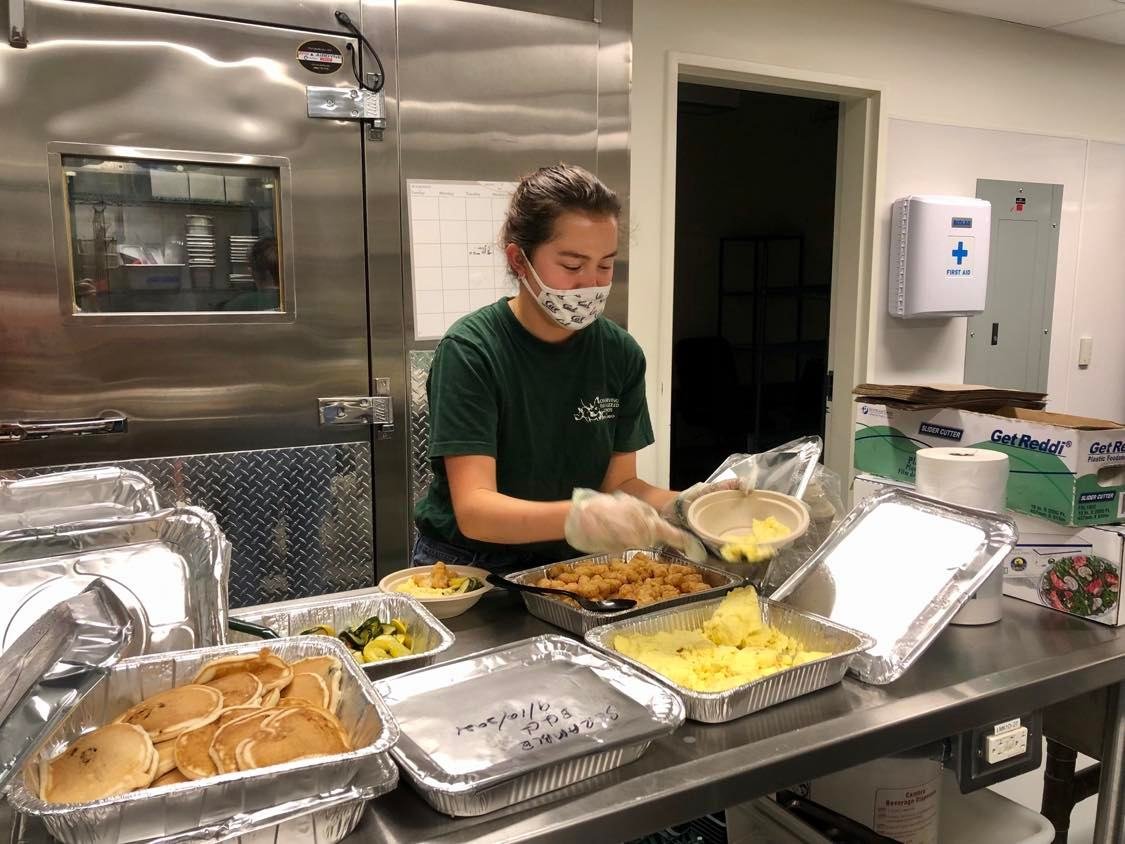With both academic and residential life on campus returning back to its typical hubbub and excitement, on-campus dining halls are swarming with eager students. With the increase in students on campus, however, also comes the increase in food waste piling up.
Not only does food waste greatly contribute to the emittance of greenhouse gasses in landfills, it also loses its purpose as the discarded food can no longer be rerouted to feed those in need. Currently, it is estimated that 30-40 percent of the country’s food supply results in waste, which corresponded to about $161 billion worth of food waste in 2010.
To compensate for this environmental concern, Cal Dining, along with additional student organizations, are working to reduce, monitor, and redirect the amount of food waste on campus.
Samantha Lubow, the Sustainability Coordinator for UC Berkeley’s Residential Student Service Programs, works with students and sustainability advocates to implement and facilitate waste reduction, food literacy, and sustainable food programs in the residential and dining halls on campus, along with other facilitations. Pre-consumer food waste — waste that happens before the food is served such as through excess food trimmings — and post-consumer food waste — which occurs after the food is served or when guests discard their leftovers — are two common forms of food waste that must be handled differently.
“For the pre-consumer level, if the food is still safe for consumption and edible...the food pantry [takes] the overproduced foods and portions them into individual meals for anyone who visits the food pantry to access,” said Lubow. “Anything that we can’t donate, like food trimmings or things that might have expired or went bad from temperature abuse, would be composted. Then for the post-consumer food waste, we’ve done a lot of education with our students around only taking what you plan to eat and making sure that the amount of food you grab matches your appetite for that day.”
Other techniques such as batch cooking are used to limit food leftovers in dining halls. Batch cooking allows dining hall chefs to predict how much of a given food is needed and refrain from making large amounts of food at one time that would otherwise be left uneaten.
“Our chefs are predicting how much they need to cook and making small batches of it, then as folks are coming into the dining hall, they’re producing that amount and always cooking so we’re (not) making extra. That helps with our overproduction. Then anything that is self-serve, we’ll make sure that we have the appropriate pan size for [that specific food],” Lubow said. “We used to do something called Weigh Your Waste...where we collect food waste at the dish return to display to the students and would then have some educational activities that discuss the environmental and social impacts of wasting food.”
One of the Weigh Your Waste events held at Crossroads Dining Hall
Implemented earlier this year, the Leanpath program works to monitor and weigh the amounts of food that are actually being donated or composted on campus. If a specific type of food, for example, is being consistently measured, the management team is able to adjust the order for that food type, review data, and thus, identify consumption trends.
“[The Leanpath program] is also helping us with SB 1383, which regulates what we need to have pretty clean records to tell [recycle programs] next year about our food recovery program,” Lubow said. “So, it’s allowing us to collect the metrics at the production level, which is where we produce it and then the food pantry is collecting metrics on what they’re accepting as well.”
SB 1383 works to establish goals statewide to reduce the amount of organic waste discarded in landfills by 75% and reroute about 20% of disposed edible food waste to those in need by 2025. This state bill hopes to decrease greenhouse gas emissions, create clean jobs, and further improve overall human health.
In addition to food waste itself, another problem within food justice that many students face is food insecurity. Food insecurity can be described as a lack of food quantity or food quality due to limited financial resources, and is experienced by approximately 39 percent of UC Berkeley undergraduates, equivalent to about 14,000 students. Resources like the Basic Needs Center food pantry act as an emergency food relief supply system for students, staff, and faculty to gain access to food when needed. Another food relief program, CalFresh, provides eligible students with up to $250 per month for grocery expenses, on an application basis. However, to preventatively limit the number of students reliant on such emergency food relief programs, the Food Assistance Program has also been implemented to support ineligible CalFresh recipients by providing supplemental meals through Cal Dining.
As both food waste and food insecurity continue to rise as prevalent issues on campus, their effects on the student population may be detrimental. Yet, by implementing more food recovery and food assistance programs, we can work to consciously redirect and reassess our use of food systems in more responsible and effective ways.


